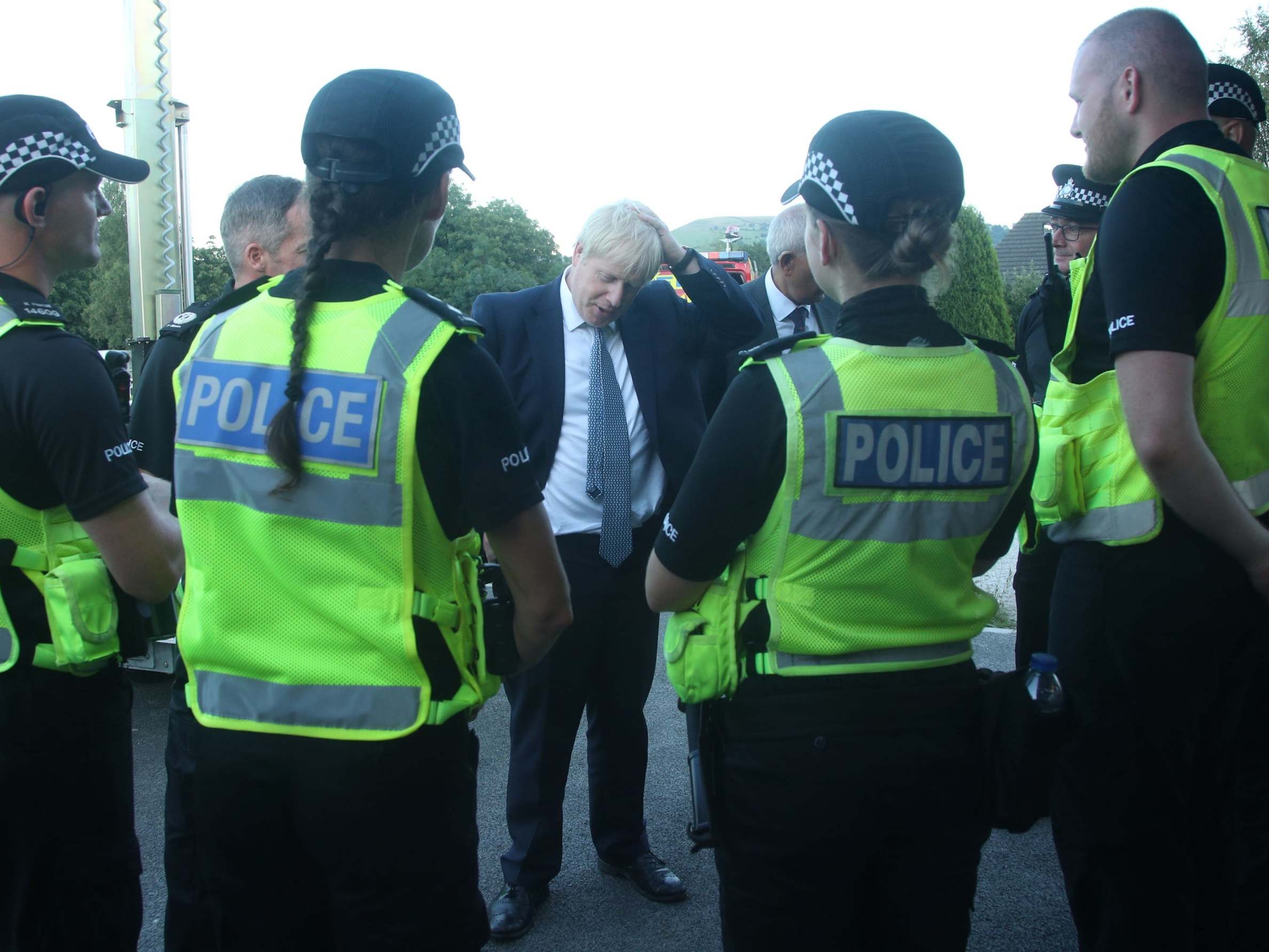Boris Johnson’s racist comments would rule him out of joining police, UK counterterror chief says
Assistant commissioner Neil Basu calls for politicians to ‘bring society together’ to combat extremism
Your support helps us to tell the story
From reproductive rights to climate change to Big Tech, The Independent is on the ground when the story is developing. Whether it's investigating the financials of Elon Musk's pro-Trump PAC or producing our latest documentary, 'The A Word', which shines a light on the American women fighting for reproductive rights, we know how important it is to parse out the facts from the messaging.
At such a critical moment in US history, we need reporters on the ground. Your donation allows us to keep sending journalists to speak to both sides of the story.
The Independent is trusted by Americans across the entire political spectrum. And unlike many other quality news outlets, we choose not to lock Americans out of our reporting and analysis with paywalls. We believe quality journalism should be available to everyone, paid for by those who can afford it.
Your support makes all the difference.Boris Johnson would be barred from joining the police because of his remarks describing black people as “piccaninnies” and comparing Muslim women to “letterboxes”, the UK’s most senior counterterror officer has said.
Asked whether someone would be allowed to join a police force if they had made the same comments, Metropolitan Police assistant commissioner Neil Basu said: “No, they wouldn’t be recruited into policing.”
Mr Basu would not comment on the prime minister’s remarks directly but told The Guardian: “Every public figure who’s got a microphone and has got an opportunity to speak should take the opportunity to be bringing society together.
“The most important thing everybody should be aiming for is a socially cohesive, inclusive society … we should all be very careful about what we say publicly.”
During his successful campaign to become leader of the Conservative Party, Mr Johnson said his previous writings describing black people as “piccaninnies” with “watermelon smiles” were “wholly satirical”.
He apologised for the offence caused by a Telegraph column in which he called veiled Muslim women “ridiculous” and compared them to “letterboxes” and “bank robbers”.
Mr Johnson’s remarks were repeated by the perpetrators of Islamophobic hate crimes.
Mr Basu called for renewed efforts to bring about social inclusion in Britain to combat both Islamist and right-wing extremism as the security services work to prevent new terror attacks.
He said the “deeper causes” of radicalisation must be examined to stop potential terrorists at an earlier stage and intervene before plots are hatched.
Mr Basu previously told The Independent he was concerned about growing polarisation in British society.
“You don’t have to be a genius to see how Brexit particularly has polarised some communities, and that’s got to be a concern,” he added.
“We should be really careful about what we say, we should be balanced, because there is no doubt in my mind that it has an effect.”
Of the terror suspects arrested in the year to March, 72 per cent identified themselves as British nationals or dual citizens, while 41 per cent were white, 36 per cent were Asian and 12 per cent black.

In his last major speech as home secretary last month, Sajid Javid appealed for a “national conversation about extremism” as he announced the government was drawing up a new strategy to combat multiple threats.
“We must act now, to avoid sliding into the barely masked racism of nationalism,” he said.
Mr Javid called on all public figures to “moderate their language” but refused to criticise Mr Johnson directly when questioned by The Independent, adding: “It’s incumbent on all politicians to be careful about the language they use.”
Assistant commissioner Martin Hewitt, head of the National Police Chiefs’ Council, has also called for public figures to stop fuelling hatred amid an increase in abuse and threats towards MPs over Brexit.
Speaking earlier this year, he said the potential for disorder around Britain’s departure from the EU would depend on “the way prominent people with a platform conduct themselves”.
“All groups of people need to think carefully – we are in a febrile atmosphere and if you’re in a position where you know you’re going to be listened to, you need to be very careful about the language you are using so it doesn’t end up with consequences that weren’t intended,” Mr Hewitt said.
Research for the Commission for Countering Extremism found that far-right protests are attracting the biggest numbers of people since the 1930s, as Brexit fuels anger against the “elite”.
YouGov polling released last month suggested 56 per cent of Conservative Party members believe Islam was “generally a threat” to the British way of life, while two-thirds believed in the myth of no-go zones where “non-Muslims are not able to enter”.
